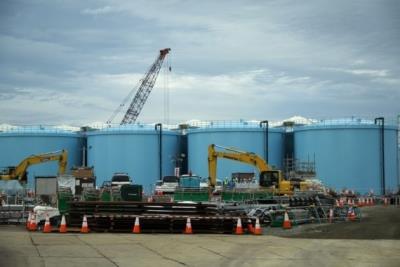
IAEA plans to inspect contaminated water release at Fukushima
Tokyo, Sep 10 (IANS) The International Atomic Energy Agency (IAEA) will dispatch a team of experts to Japan in December to review the country's plan to dump radioactive water from the Fukushima Daiichi nuclear plant into the sea.
The plan was proposed after China and South Korea, as well as local fishing communities, have voiced strong criticism against releasing the contaminated water accumulated at the plant since the 2011 massive earthquake and tsunami, reports Xinhua news agency.
"The agency is firmly committed to ensuring that the review is comprehensive and objective and that the results are conveyed to the international community," Lydie Evrard, head of the Department of Nuclear Safety and Security of the IAEA, said during an online news conference on Thursday.
The Japanese government decided in April to start discharging the water into sea from around spring of 2023.
The decision has received strong criticism from China and other neighbouring countries.
China has expressed serious concerns, with Foreign Ministry spokesperson Zhao Lijian saying that Beijing urged the Japanese side to take a responsible attitude and treat the issue of nuclear waste disposal with caution.
Meanwhile, South Korea has also voiced its "grave concerns", with Foreign Ministry spokesman Choi Young-sam saying "it will be difficult to accept if the Japanese side decides to release the contaminated water from the Fukushima nuclear power plant without sufficient consultations".
Evrard said the IAEA will select the inspection team members from 11 countries including China and South Korea.
IAEA staff may travel to Japan sometime next year to present the results before the actual discharge of the nuclear water, she said.
Water pumped into the ruined reactors at the Fukushima plant to cool the melted fuel, mixed with rain and groundwater, which has also been contaminated, is being treated using an advanced liquid processing system to remove most contaminants.
However, substances like tritium, a radioactive byproduct of nuclear reactors, are hard to filter out.
According to some marine experts, traces of ruthenium, cobalt, strontium, and plutonium isotopes in the wastewater also raise concerns.
--IANS
ksk/

Legal Disclaimer:
MENAFN provides the
information “as is” without warranty of any kind. We do not accept
any responsibility or liability for the accuracy, content, images,
videos, licenses, completeness, legality, or reliability of the information
contained in this article. If you have any complaints or copyright
issues related to this article, kindly contact the provider above.


















Comments
No comment